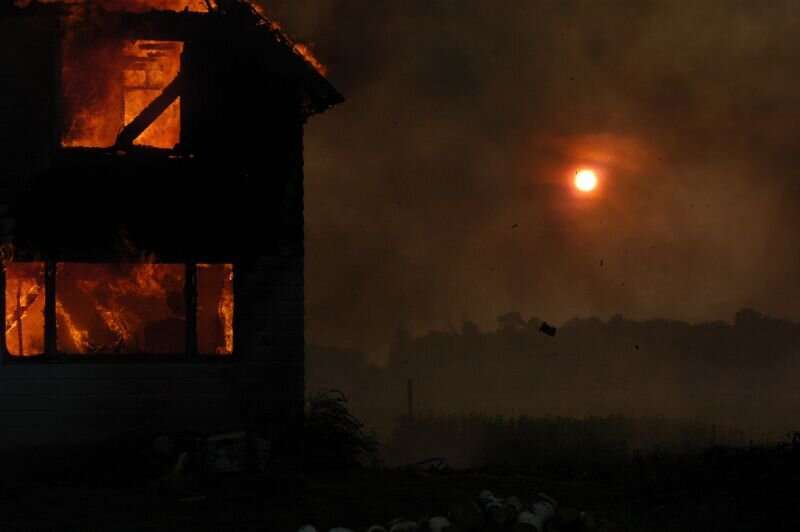Australians whose homes have been damaged or destroyed in climate-related disasters such as floods, cyclones or bushfires suffer significant health and housing impacts, new research shows.
In the study, published in The Lancet Planetary Health, University of Melbourne researchers looked at population-based data to track the health and housing outcomes and recoveries of 1,984 Australians whose homes were impacted by climate-related disasters in the years between 2009 and 2019.
The study found people who were exposed to disaster-related damage to their homes were impacted in terms of their mental health, social functioning and emotional well-being—while also reporting significantly lower levels of general health—and that these impacts often lasted years.
Research fellow Dr. Ang Li from the NHMRC Center of Research Excellence in Healthy Housing in the Center for Health Policy (School of Population and Global Health) led the research, and said that extreme climate events have become more frequent and severe in Australia, destroying people’s homes and often destabilizing their lives.
“These events can cause huge upheaval in a person’s life,” Dr. Li said.
“We found exposure to home damage from such events had significant negative effects on people’s health and well-being at the disaster year and continued to have a lasting impact for at least 1–2 years after the event.”
Dr. Li said it shows the need to consider housing as prevention and intervention, to protect people’s health and well-being as Australia continues to grapple with climate-related disasters.
“Climate-related disasters are happening more often, creating an urgent need to research and develop preventative measures,” Dr. Li said.
“Exposure to home damage from climate-related disasters had significant negative effects on people’s health and well-being.
These effects were also worse for people who had housing affordability stress or were living in poor quality housing before the disaster.”
Dr. Li said that patterns of housing recovery were different for renters and owners.
“We found homeowners had increased housing affordability stress that could last for a couple of years after the disaster, while renters had a higher prevalence of acute residential instability,” Dr. Li said.
“Our findings support the need for recovery planning and resilience building to consider housing affordability, tenure security, and housing condition.”
Dr. Li said people who had pre-existing physical and mental health conditions also suffered more substantially.
More information:
Ang Li et al, Health and housing consequences of climate-related disasters: a matched case-control study using population-based longitudinal data in Australia, The Lancet Planetary Health (2023). DOI: 10.1016/S2542-5196(23)00089-X
Citation:
How climate-related disasters exacerbate health and housing vulnerability (2023, June 6)
retrieved 6 June 2023
from https://medicalxpress.com/news/2023-06-climate-related-disasters-exacerbate-health-housing.html
This document is subject to copyright. Apart from any fair dealing for the purpose of private study or research, no
part may be reproduced without the written permission. The content is provided for information purposes only.


